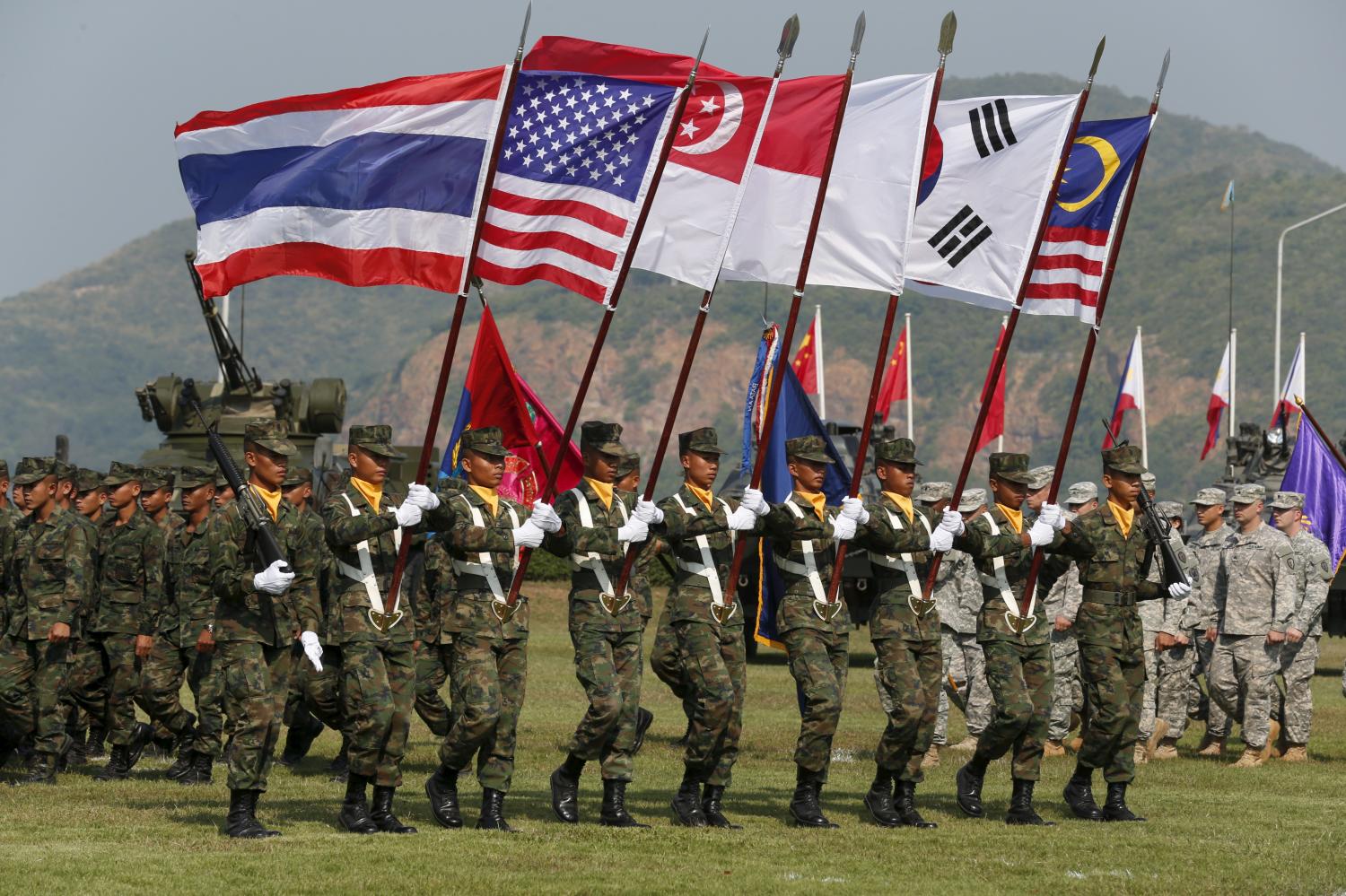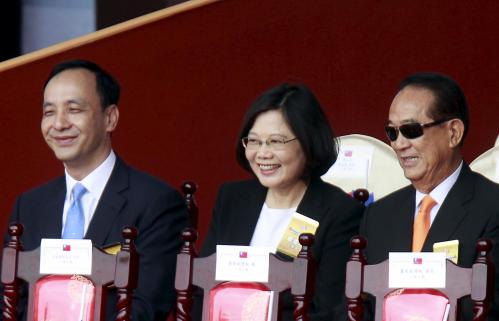As the United States election season heats up, campaign rhetoric questioning the value of U.S. alliances overseas has kicked off a furor of debate in foreign policy circles. At this critical juncture of the United States reassessing its international obligations, contributing scholars to the Brookings Order from Chaos project offer their analyses of the various U.S. alliances and security partnerships, along with the diverse economic, diplomatic, and security challenges that impact those critical commitments.
Setting the stage
 America’s Alliances and Security Partnerships in East Asia: Introduction
America’s Alliances and Security Partnerships in East Asia: Introduction
Alliances have been a critical part of the U.S.-led security order in East Asia since the early post-World War II period. As regional geopolitics evolve and respond to China’s revival as a great power, so too will American alliances and security partnerships. This series contends that alliances will remain a key element of U.S. national security in defending regional stability.
U.S. alliances and security partnerships
 The U.S.-Japan Alliance
The U.S.-Japan Alliance
At a time when one of America’s closest allies is facing a variety of existential threats, John Allen and Benjamin Sugg argue that Washington must be able to assure Japan that its security is deep-seated in U.S. grand strategy and the balance of power in the region.
 The U.S.-ROK Alliance: Projecting U.S. Power and Preserving Stability in Northeast Asia
The U.S.-ROK Alliance: Projecting U.S. Power and Preserving Stability in Northeast Asia
Evans Revere argues that the threat of nuclear-armed North Korea, as well as rapidly changing security dynamics in Asia, make bolstering the U.S.-Korea alliance crucial for the next U.S. president to project American power and preserve stability in Northeast Asia.
 Australia and the United States: Navigating Strategic Uncertainty
Australia and the United States: Navigating Strategic Uncertainty
In these times of growing uncertainty in the global and Asian strategic environments, the U.S.-Australian security alliance seems a pillar of stability. Even so, Rory Medcalf proposes it requires a reality check if it is to stay resilient and durable in the difficult times ahead.
 The U.S.-Philippine Alliance in a Year of Transition: Challenges and Opportunities
The U.S.-Philippine Alliance in a Year of Transition: Challenges and Opportunities
The presidential elections in the United States and the Philippines mark uncertain transitional periods for both sides. Sheena Chestnut Greitens assesses the U.S.-Philippine alliance in terms of its current status and possible future trajectories in light of the changing domestic political alignments in Washington and Manila.
 The U.S.-Singapore Partnership: A Critical Element of U.S. Engagement and Stability in the Asia-Pacific
The U.S.-Singapore Partnership: A Critical Element of U.S. Engagement and Stability in the Asia-Pacific
Lynn Kuok surveys the deep partnership between the United States and Singapore and finds that, though not formal allies, the two share the belief that a strong U.S. presence in the Pacific is vital for the region’s peace, stability, and prosperity. Yet, because Singapore is a reliable partner, the next U.S. administration must not take the partnership for granted if it is to flourish going forward.
 The United States Security Partnership with Taiwan
The United States Security Partnership with Taiwan
Taiwan’s reliance on the United States as a security strategy will only be tested by China’s growing military capability. Richard C. Bush analyzes the United States’ unique relationship with Taiwan and its implications for Cross-Strait political disputes.
The Brookings Institution is committed to quality, independence, and impact.
We are supported by a diverse array of funders. In line with our values and policies, each Brookings publication represents the sole views of its author(s).






